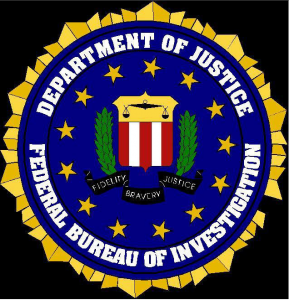MIAMI, FLORDIA
 A federal grand jury indicted eight people for concocted an NFL-related securities fraud scheme that targeted the elderly, pressuring them to buy stock in two companies, officials announced Monday.
A federal grand jury indicted eight people for concocted an NFL-related securities fraud scheme that targeted the elderly, pressuring them to buy stock in two companies, officials announced Monday.
More than 200 investors were scammed in the $2.4 million fraud.
“Securities fraud schemes that target members of our community jeopardize our personal investments and security. Our Office,in collaboration with the FBI, strives to prevent the victimization of our elderly residents. By combatting these invasive fraud schemes, we help to protect potential victims from losing their hard-earned money to telemarketing thieves,” stated U.S. Attorney Wifredo A. Ferrer.
The following people were named in the indictment were charged with mail and wire fraud:
David Anthony Eratostene, 53, of Miramar, Florida
Christopher J. Borgo, 41, of Boca Raton
Alan D. Messina, 54, of Sunrise
Michael T. Angeletti, 33, of Sunrise
Michael J. Calash, 34, of Boca Raton
Stephen R. Reynolds, 38, of Pompano Beach
Gary X. Schultz, 55, of Miramar
Chazon Stein, 36, North Miami Beach
According to allegations contained in the indictment, the defendants pressured investors into purchasing stock in two companies — Development Inc. and Virgin Gaming.
Development Inc was a Miami Beach-based company that claimed its signature invention generated a green laser on the football field in the stadium to players, fans and television.
Development Inc. represented that use of its technology would decrease the time used by officials to determine first downs, freeing up broadcast time that could then be sold to television advertisers, the indictment alleges.
The defendants raised about $2.4 million through the use of call rooms that targeted more than 200 investors throughout the nation, who were told that an initial public offering in Development Inc. was imminent.
Also that their money would be safe and used to develop the ground-breaking technology, officials said.
Instead, the indictment alleges, that the offering was not forthcoming as promised, officials said.
The indictment alleges that the second fraudulently sold stock, for Virgin Gaming, a subsidiary of Virgin Media, Inc., provided a fee-based service that facilitated online tournaments, fantasy sports leagues, and competitive online gaming.
The Virgin Gaming scheme took one of two forms:
In some instances, sales agents told investors they would be investing in a company that had obtained the right to purchase shares of Virgin Gaming stock, and those shares would be converted into shares of Virgin Gaming just prior to an public offering of stock.
However, this was not true.
On other occasions, officials said sales agents told investors that they were directly purchasing Virgin Gaming stock when in fact they were not.
The defendants’ sales agents also lied about guaranteed returns on investments and the timing of the purported stock public offering.
Defendants are presumed innocent until proven guilty.
The FBI investigated this case.

